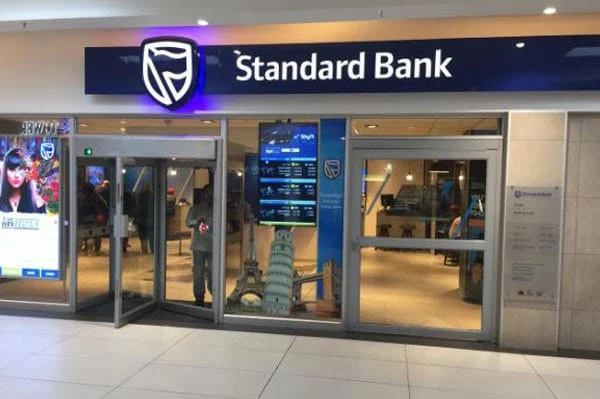Standard Bank of South Africa hit back at the Competition Commission, accusing it of ignoring facts and submitting evidence that is insufficient in the ongoing case of alleged rand manipulation and price-fixing.
Advocate Kate Hofmeyr, who is representing Standard Bank, said the Competition Commission never bothered to engage Standard Bank when investigating allegations of rand manipulation and price-fixing by local and foreign banks.
She said this on Wednesday during the Constitutional Court hearing in Braamfontein, Johannesburg. The hearing is on the allegations of rand manipulation and price-fixing case. The one between the commission and several local and foreign banks.
Appeal against prior judgement
The commission, as the applicant in the case, approached the highest court in the land for leave to appeal the Competition Appeal Court (CAC) judgement handed down in January last year, in which it upheld the appeal by the majority of the respondent banks accused of rand manipulation and price-fixing.
In January last year, the CAC dismissed the cases against some of the 28 banks. The banks were accused of rand manipulation. The commission alleged that the banks colluded to manipulate the dollar and/or rand foreign exchange rate. Thereby contravening the Competition Act of 1998.
The current leave to appeal is against 28 local and foreign banks. These include Standard Bank of South Africa Limited, Absa Bank Limited, Nedbank Limited, and FirstRand Bank Limited, the bulk of which are foreign banks. Absa Bank is not an active participant in the proceedings.
On Wednesday, Hofmeyr said the commission’s leave for appeal application should be dismissed. This based on the facts it ignored throughout the history of the case.
“This case began 10 years ago. In April 2015, the commission investigated the complaint of rand manipulation and collusion…The commission investigated the complaint for one-and-a-half years. During this time, the commission did not meet with Standard Bank. It did not ask Standard Bank for any information. It did not make a request to Standard Bank for any document, and did not subpoena representatives of Standard Bank.
bloody-minded ignorance
“In February 2017 the commission went to the media and said it decided to refer the collusion case to the tribunal… The referral affidavit of the commission is patently inadequate… The commission displayed bloody-minded ignorance and did not take into account the facts presented by Standard Bank in its court papers…,” said Hofmeyr.
She said the Competition Commission ought to have behaved like a “responsible public body”. It should have considered the facts presented by Standard Bank in its court papers.
Hofmeyr said the arguments made by the Commission are “palpably wanting”.
On Tuesday, Adv Tembeka Ngcukaitobi SC, who is representing the Competition Commission, said the manipulation of the rand by local and foreign banks is a transnational cartel driven by profit maximisation.
“Each bank contributed to misconduct. The misconduct is cartel and collusive behaviour… Cartels have evolved and are now bigger, complex and transnational. This case is a classical example of transnational cartels. Not only did these cartels not respect territorial borders or nationalities, they do not respect any product but in pursuit of profit,” said Ngcukaitobi.
From Tuesday to Friday, the Constitutional Court will hear three consolidated applications for leave to appeal against the judgement and order of the CAC delivered on January 8 2024.
Case continues
The case will continue hearing arguments on Thursday.
The commission accused 19 banks of alleged misconduct involving price-fixing and market division.
In February 2017, the commission referred to the tribunal for prosecution a collusion case against Bank of America Merrill Lynch International Limited, BNP Paribas, JP Morgan Chase & Co, JP Morgan Chase Bank N.A, Investec, Standard New York Securities, HSBC Bank, Standard Chartered, Credit Suisse Group, and Standard Bank.
Other banks included Commerzbank, Australia and New Zealand Banking Group Limited. Also Nomura International, Macquarie Bank, Absa, Barclays Capital, and Barclays Bank.
In June 2020, the commission submitted a comprehensive referral affidavit. This aimed to address previous deficiencies noted by the tribunal and the court.
This affidavit asserted that between September 2007 and September 2013, the respondent banks were involved in a unified conspiracy aimed at manipulating rand/dollar currency trading through price-fixing and market segmentation.
Banks’ traders fingered
The commission’s claims were based on extensive communication picked up among traders from different banks who competed with each other.
The communication is said to have occurred through Bloomberg chatrooms.
The commission argued that the frequent and consistent communication made it easier for banks to manipulate the rand/dollar currency pair. This resulted in artificially inflated prices for buyers and reduced prices for sellers of the rand.
Then in January last year, the CAC ruled in favour of several South African banks. These included Standard Bank Group, Nedbank Group, and FirstRand, as well as most of the foreign banks that were implicated in the allegations.




